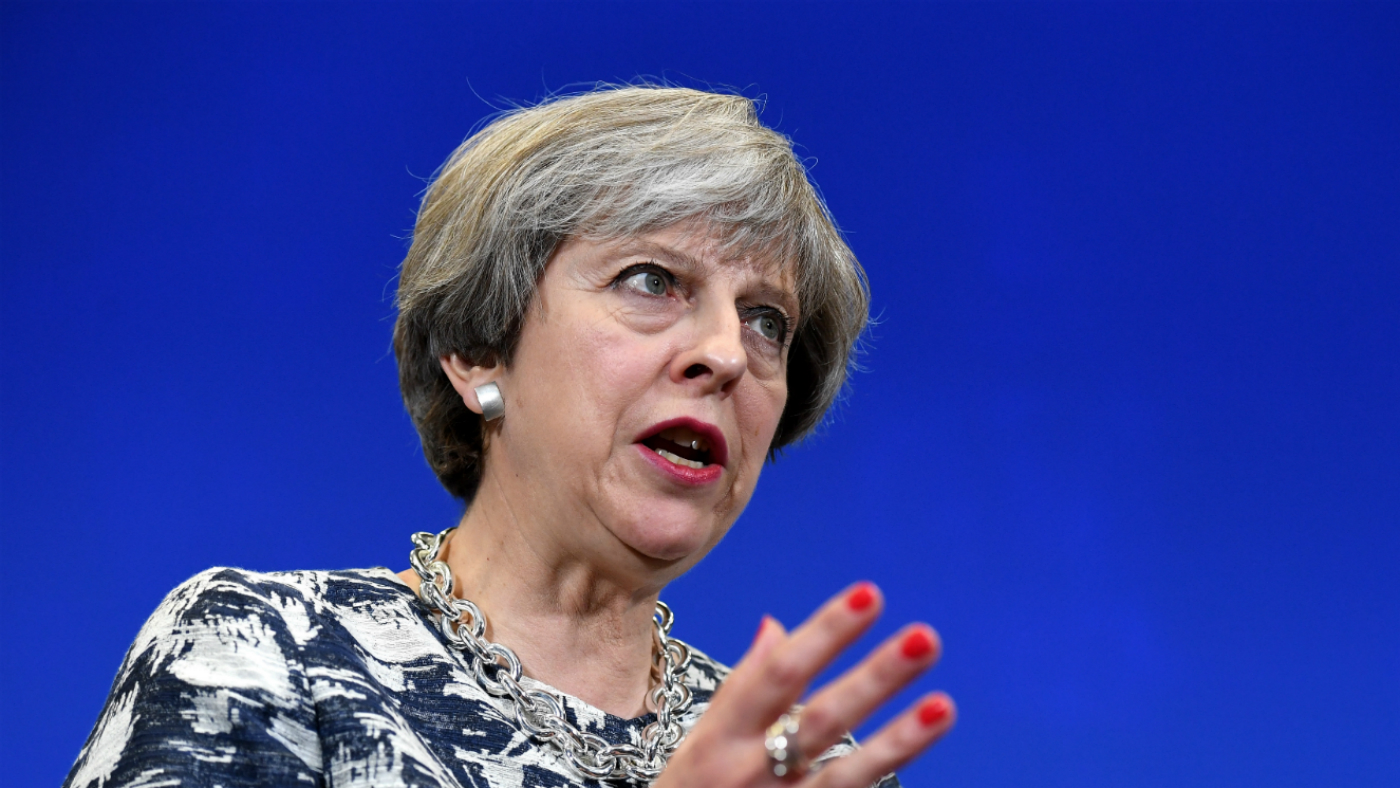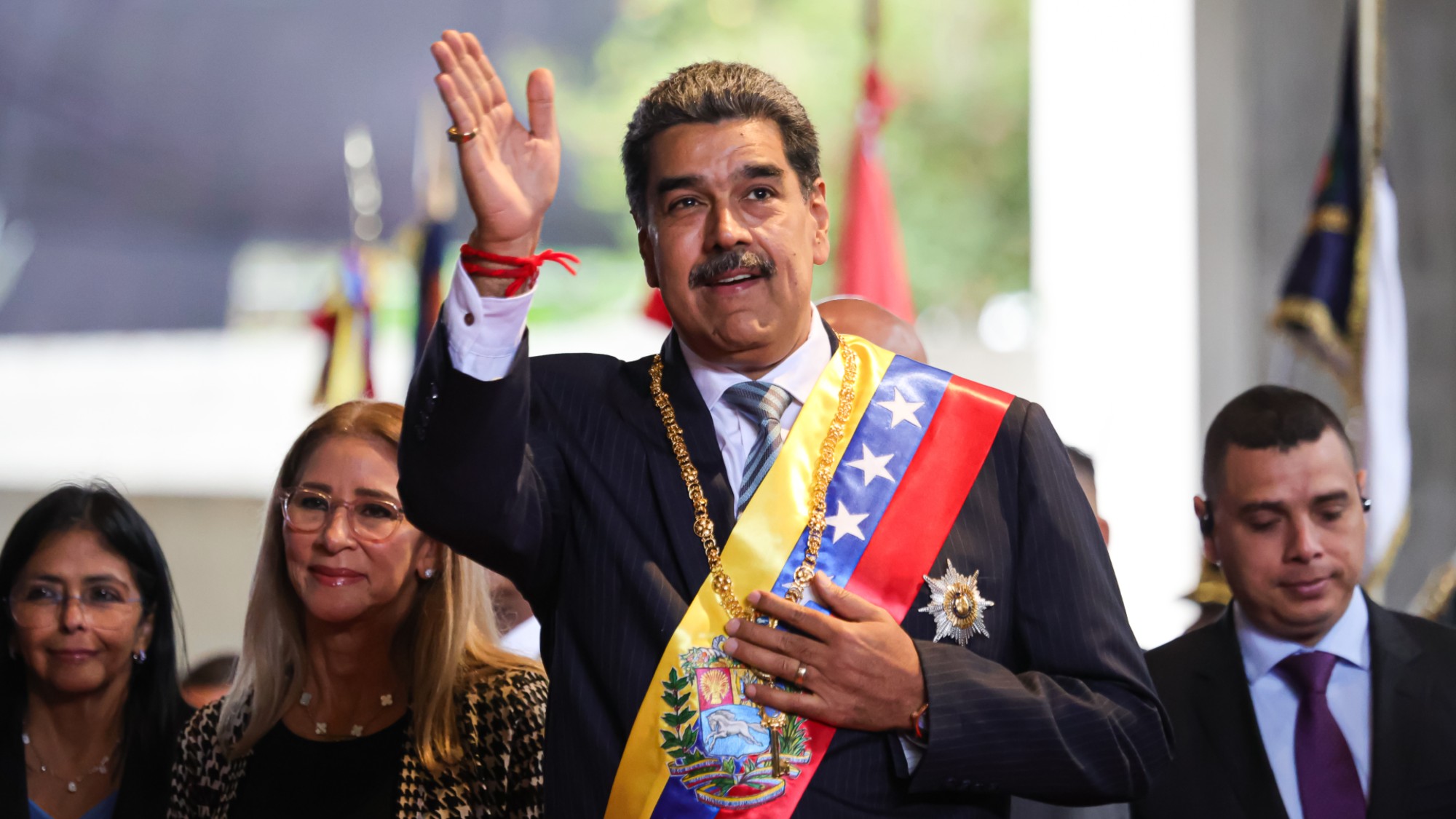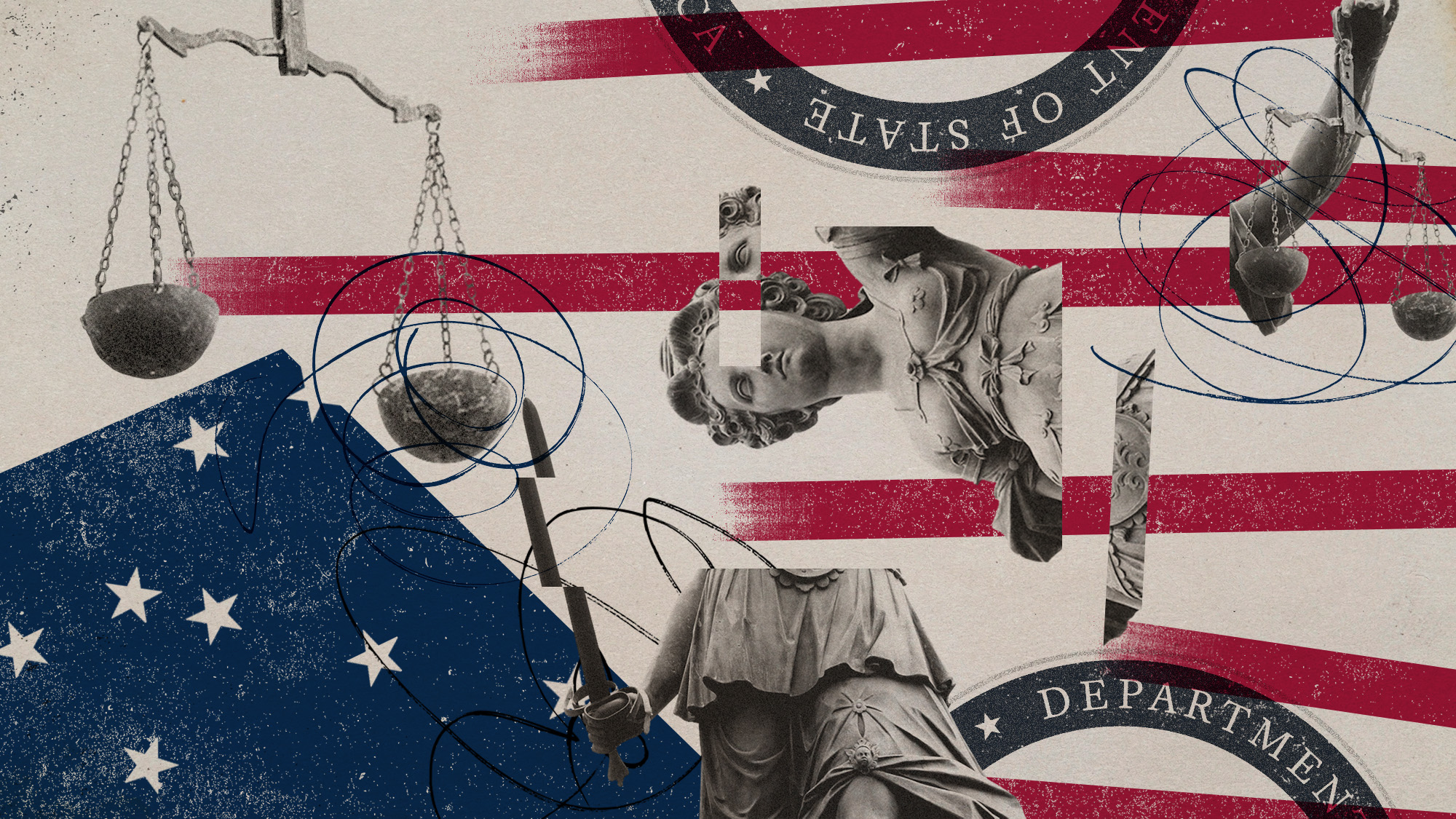Human rights laws: Do they protect us or undermine our security?
With Theresa May threatening to 'rip up' the act, The Week examines what the laws mean for the UK

A free daily email with the biggest news stories of the day – and the best features from TheWeek.com
You are now subscribed
Your newsletter sign-up was successful
Prime Minister Theresa May has declared she wants to "rip up" human rights laws if they "stop us" from tackling terrorism.
Her statement has been criticised as a crass attempt to deflect criticism away from Tory-led cuts to policing and security oversights in the run-up to Saturday's London Bridge attack.
But do human rights laws prevent the capture and prosecution of terrorists, as May suggests?
The Week
Escape your echo chamber. Get the facts behind the news, plus analysis from multiple perspectives.

Sign up for The Week's Free Newsletters
From our morning news briefing to a weekly Good News Newsletter, get the best of The Week delivered directly to your inbox.
From our morning news briefing to a weekly Good News Newsletter, get the best of The Week delivered directly to your inbox.
What are the human rights laws in the UK?
The UK is a member of several international treaties designed to respect and promote human rights. These include the European Convention on Human Rights (ECHR), which emerged after World War II.
Under the Human Rights Act 1998, rights protected under the ECHR must be respected by the UK government and are enforceable in our courts.
As well as a range of issues such as the right to marry and to enjoy a family life, the ECHR also covers core civil liberties, including the rights to liberty and to a fair trial "within a reasonable time". It also bans torture and degrading treatment and protects against unlawful arrest and detention.
A free daily email with the biggest news stories of the day – and the best features from TheWeek.com
Article 15 of the ECHR allows the UK to depart from parts of the convention in "time of emergency" in respect of Article 5, the right to liberty and security, writes BBC legal correspondent Clive Coleman.
What does this all have to do with terrorism?
The UK has a long history of tensions between human rights law and counter-terrorism laws, which usually restrict an individual's freedoms.
Following the 9/11 attacks in New York, the UK introduced a series of counter-terrorism measures to ensure suspected militants could be easily detained.
However, they were deemed unlawfully discriminatory by the courts for only targeting non-UK citizens.
As home secretary, May faced a stand-off with the courts over the deportation of radical cleric Abu Qatada overs concerns about whether he would receive a fair trial in his home country of Jordan.
What has Theresa May said?
May is proposing to introduce tougher sentences for those convicted of terror offences, to make it easier to deport foreign suspects and, reports The Sun, to allow suspects to be held by the police without charge for 28 days, double the current 14.
"If our human rights laws stop us from doing [this], we'll change the laws so we can do it", she said.
According to The Guardian, this is likely to mean seeking further derogations from the ECHR.
While the Tory manifesto commits the party to remaining in the convention for the whole of the next parliament, May's rhetoric has cast a shadow over its long-term future.
Dominic Casciani of the BBC says her speech signals a return to the days of tighter control orders, emphasising the need to restrict freedoms of suspects who "present a threat, but [against whom we] do not have enough evidence to prosecute".
What has the reaction been?
Former deputy prime minister Nick Clegg called it a "rather crass" last-ditch attempt to divert attention from Tory cuts.
Speaking on BBC Radio 4's Today programme, he said: "There is not a shred of evidence to suggest that human rights laws are the reasons why these murderous acts happened in Manchester and London."
He added that since 2014, the policy has been to "deport first, appeal later", meaning it is easier to get foreign suspects out of the country.
Shadow Brexit secretary Keir Starmer, a former director of public prosecutions, said the Human Rights Act had never "got in the way" of prosecuting serious crime.
He added: "If we start throwing away our adherence to human rights in response to what has happened in the last three months, we are throwing away the values at the heart of the democracy, everything that we say we believe in."
Civil liberty groups such as Amnesty International and Liberty also argue that undermining human rights law is giving in to terrorism.
And lawyer and Financial Times columnist David Allen Green said tearing up human rights law "would mean UK joining those few countries without rights protection. Countries which still have terrorism".
-
 Why is Prince William in Saudi Arabia?
Why is Prince William in Saudi Arabia?Today’s Big Question Government requested royal visit to boost trade and ties with Middle East powerhouse, but critics balk at kingdom’s human rights record
-
 Wuthering Heights: ‘wildly fun’ reinvention of the classic novel lacks depth
Wuthering Heights: ‘wildly fun’ reinvention of the classic novel lacks depthTalking Point Emerald Fennell splits the critics with her sizzling spin on Emily Brontë’s gothic tale
-
 Why the Bangladesh election is one to watch
Why the Bangladesh election is one to watchThe Explainer Opposition party has claimed the void left by Sheikh Hasina’s Awami League but Islamist party could yet have a say
-
 The high street: Britain’s next political battleground?
The high street: Britain’s next political battleground?In the Spotlight Mass closure of shops and influx of organised crime are fuelling voter anger, and offer an opening for Reform UK
-
 Nicolás Maduro: from bus driver to Venezuela’s president
Nicolás Maduro: from bus driver to Venezuela’s presidentIn the Spotlight Shock capture by US special forces comes after Maduro’s 12-year rule proved that ‘underestimating him was a mistake’
-
 Is a Reform-Tory pact becoming more likely?
Is a Reform-Tory pact becoming more likely?Today’s Big Question Nigel Farage’s party is ahead in the polls but still falls well short of a Commons majority, while Conservatives are still losing MPs to Reform
-
 Taking the low road: why the SNP is still standing strong
Taking the low road: why the SNP is still standing strongTalking Point Party is on track for a fifth consecutive victory in May’s Holyrood election, despite controversies and plummeting support
-
 Why has the State Department scaled down its stance on human rights?
Why has the State Department scaled down its stance on human rights?Today's Big Question The Trump administration has curtailed previous criticisms of human rights violations
-
 What difference will the 'historic' UK-Germany treaty make?
What difference will the 'historic' UK-Germany treaty make?Today's Big Question Europe's two biggest economies sign first treaty since WWII, underscoring 'triangle alliance' with France amid growing Russian threat and US distance
-
 Is the G7 still relevant?
Is the G7 still relevant?Talking Point Donald Trump's early departure cast a shadow over this week's meeting of the world's major democracies
-
 Angela Rayner: Labour's next leader?
Angela Rayner: Labour's next leader?Today's Big Question A leaked memo has sparked speculation that the deputy PM is positioning herself as the left-of-centre alternative to Keir Starmer